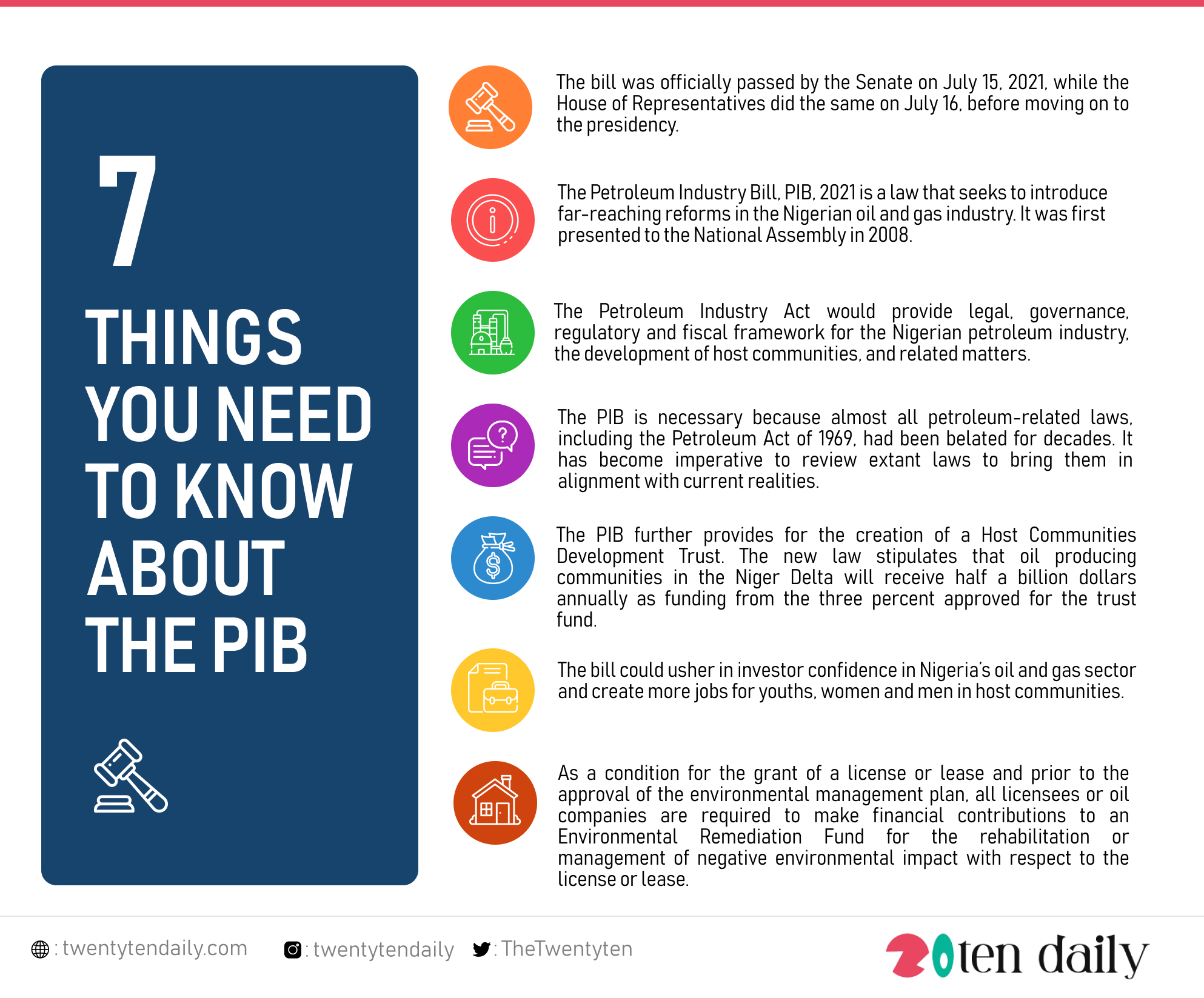Tenets Of The Newly Signed Petroleum Industry Law
President Muhammadu Buhari on Monday, August 16, 2021, signed into law the long-awaited Petroleum Industry Bill as confirmed in a statement signed by Femi Adesina, Special Adviser on Media and Publicity to the President.
Before now, there have been various iterations of the Petroleum Industry Law. The PIB started as an omnibus bill back in 2008 and was later divided into 4 separate bills before emerging in 2021 as a consolidated bill which has now been signed to law.
Previous attempts at passing the PIB in 2008, 2012 and 2018 failed due to misalignment of interests between the National Assembly and the Executive, strong opposition by the petroleum host communities and push back by investors on the perceived uncompetitive provisions in those versions of the bill.
The bill was officially passed by the Senate on July 15, 2021, while the House of Representatives did the same on July 16, before moving on to the presidency.
Even though the petroleum industry provides less than 10% to the country’s gross domestic product, it contributes about 90% of the foreign exchange earnings and 60% of total revenue in Nigeria.

Below are those things you should know about the PIB
1. What is the Petroleum Industry Bill, PIB?
The Petroleum Industry Bill, PIB, 2021 is a law that seeks to introduce far-reaching reforms in the Nigerian oil and gas industry. It was first presented to the National Assembly in 2008.
2. What are the major objectives?
The Petroleum Industry Act would provide legal, governance, regulatory and fiscal framework for the Nigerian petroleum industry, the development of host communities, and related matters.
3. Why do we need the PIB?
The PIB is necessary because almost all petroleum-related laws, including the Petroleum Act of 1969, had been belated for decades. In other words, they are no more relevant and competitive globally. With the advancement in technology, the volatility of oil prices, climatic changes influencing the driving forces of the global economy, it has become imperative to review extant laws to bring them in alignment with current realities.
4. What about the Host Communities Development Trust?
The PIB further provides for the creation of a Host Communities Development Trust. The new law stipulates that oil producing communities in the Niger Delta will receive half a billion dollars annually as funding from the three percent approved for the trust fund.
5. What are the environmental concerns in the PIB?
As a condition for the grant of a license or lease and prior to the approval of the environmental management plan, all licensees or oil companies are required to make financial contributions to an Environmental Remediation Fund for the rehabilitation or management of negative environmental impact with respect to the license or lease. Financial contributions depend on the size of the petroleum operations and the level of environmental risk that may exist.
The regulator will apply the Fund towards the rehabilitation, remediation or management of negative environmental impact only when the licensed operator lacks the capacity, or is unable to undertake the rehabilitation or management of any negative impact on the environment effectively.
6. Foreign Investors
The bill could usher in investor confidence in Nigeria’s oil and gas sector and create more jobs for youths, women and men in host communities.



